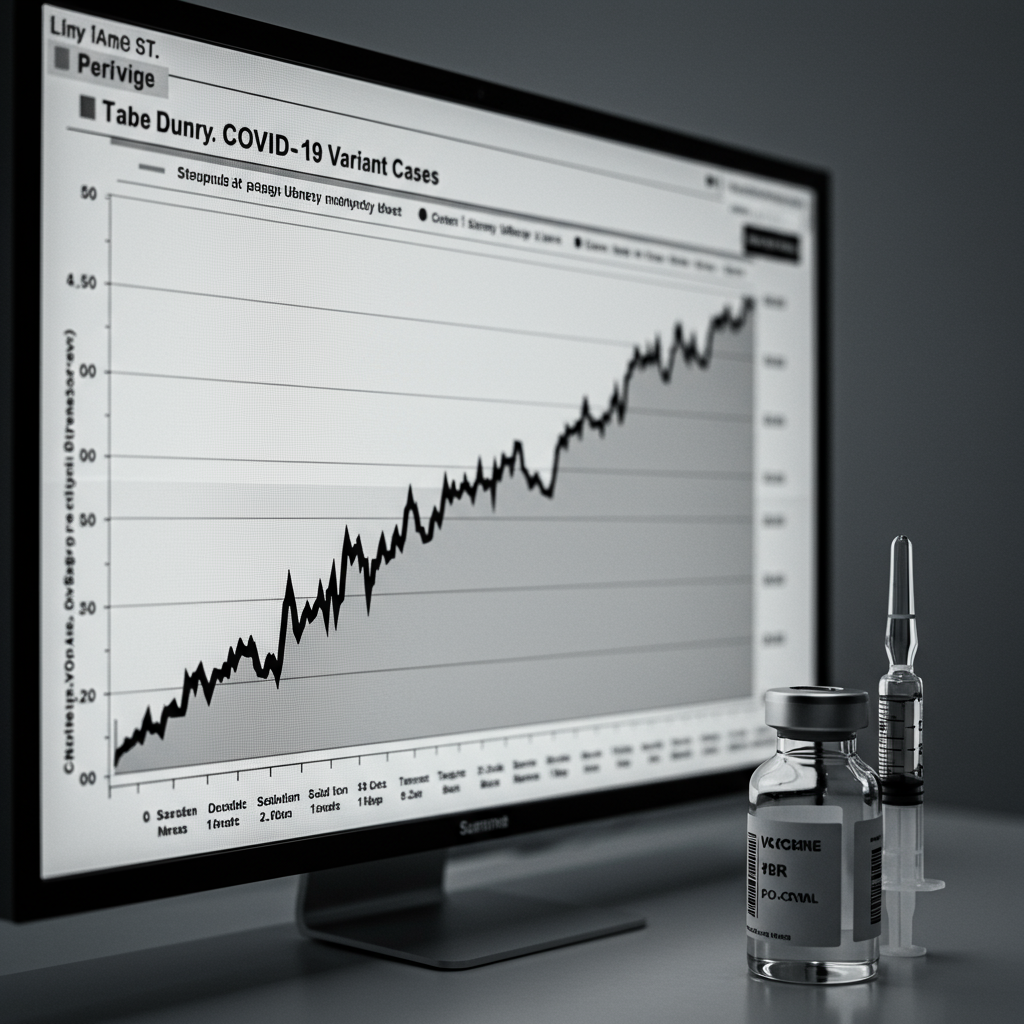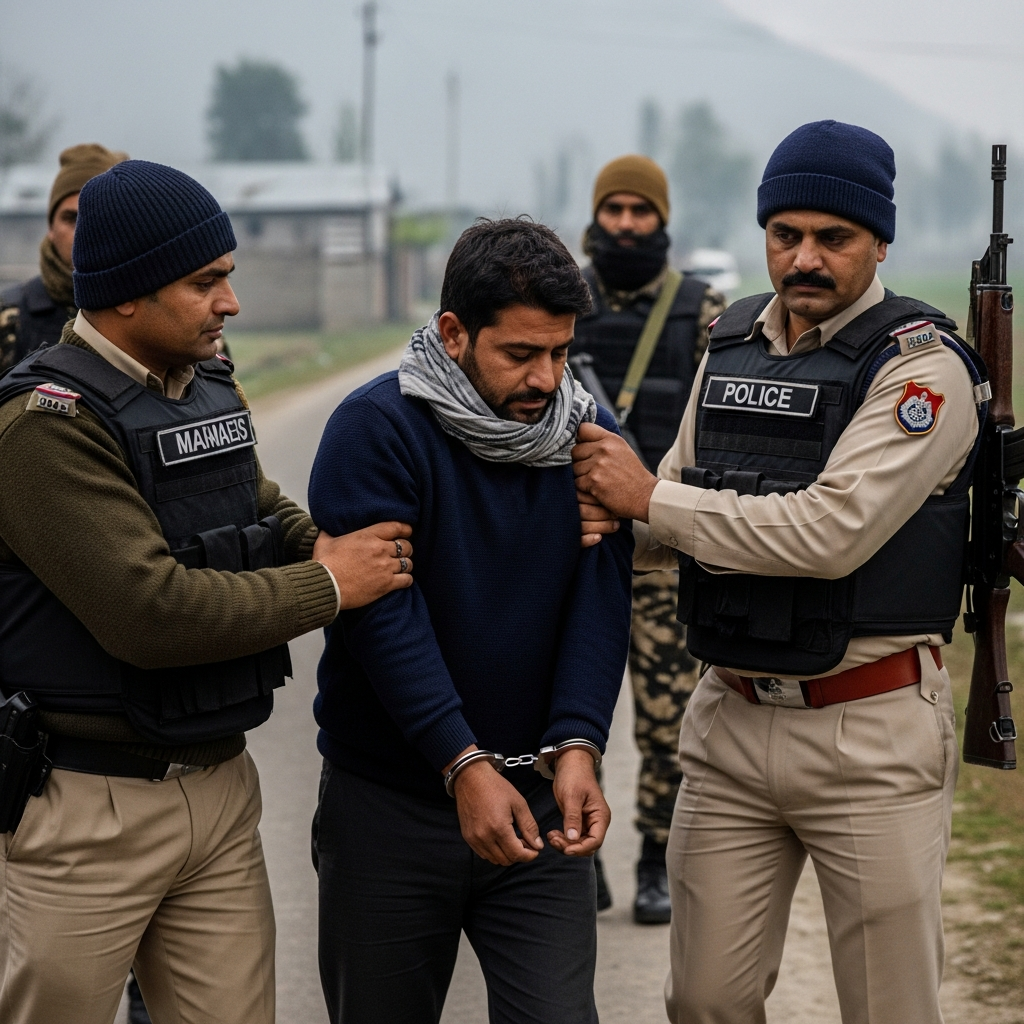Public health officials are closely monitoring shifts in viral activity, with new data from the Centers for Disease Control and Prevention (CDC) highlighting a significant increase in a specific COVID-19 variant across the United States. Simultaneously, a key vaccine developer has received expanded approval for its respiratory syncytial virus (RSV) shot, though future vaccine recommendations face uncertainty due to recent changes in a critical advisory committee.
Tracking COVID-19 Variant Shifts
According to the CDC’s latest estimates on variant proportions, the presence of the NB.1.8.1 COVID variant has surged. Since late May, this variant has jumped from accounting for an estimated 15% of cases to 37%, bringing it nearly level with LP.8.1, which has been the dominant subvariant in recent months.
NB.1.8.1 was recently added to the World Health Organization’s (WHO) list of variants under monitoring (VUM) on May 23rd. The WHO noted its rapid growth globally, with initial estimates showing it rose from 2.5% to 10.7% of sequenced samples worldwide in the four weeks leading up to late April, and it has now been detected in at least 22 countries. It descends from the JN.1 Omicron SARS-CoV-2 variant lineage.
The variant has been a factor in rising COVID-19 cases and hospitalizations in some countries, particularly in parts of Asia. However, preliminary assessments by both the WHO and the European Centre for Disease Prevention and Control (ECDC) suggest that NB.1.8.1 appears only minimally more immune-evasive than the prevalent LP.8.1 and does not currently seem to cause more severe illness than other circulating variants. While the WHO’s risk assessment is currently low, they note confidence in this assessment is also low, pending further studies.
The ECDC reports a slow increase in overall COVID activity in Europe, though from low baseline levels. Indicators of severe disease, such as hospitalizations and ICU admissions, have not shown a corresponding rise. Dr. Eduardo Colzani, ECDC’s head of respiratory viruses, stated that NB.1.8.1 doesn’t appear to pose a greater threat than other Omicron descendants, and they do not anticipate an impact on vaccine effectiveness or the severity of illness. However, he cautioned that low SARS-CoV-2 activity during the winter might mean population immunity has waned, particularly in older adults and those with underlying health conditions, potentially contributing to the observed slow rise in cases.
In the United States, national COVID-19 activity remains low based on the latest CDC data, including wastewater surveillance, although higher levels are detected in the western regions compared to other parts of the country. The CDC also noted a modest rise in proportions of the XFG variant, another JN.1 descendant, from 6% to 8% over the same period. Separately, Moderna has filed for FDA review of an updated COVID vaccine targeting the LP.8.1 sublineage, aligning with regulatory guidance for future vaccine compositions.
Expanded RSV Vaccine Approval and Advisory Committee Changes
In other significant public health news, vaccine maker Moderna announced that its RSV vaccine, mResvia (mRNA-1345), has received expanded approval from the U.S. Food and Drug Administration (FDA).
The FDA initially approved mResvia in May 2024 for adults aged 60 and older. The expanded approval now includes people aged 18 to 59 years old who are at increased risk for severe RSV disease. This decision is based on studies showing that over one-third of adults in this younger age group have underlying health conditions that elevate their risk, with hospitalization rates potentially comparable to or exceeding those seen in older adults. Moderna CEO Stéphane Bancel highlighted the serious health risk RSV poses to adults with certain chronic conditions, calling the expanded approval an important step forward.
Data from a phase 3 clinical trial supported the approval, demonstrating that the vaccine generated comparable levels of neutralizing antibodies against RSV in the 18-to-59 age group as observed in older adults.
This expanded approval comes as an influential federal vaccine advisory committee prepares to revisit recommendations for RSV vaccines in younger adults. At their April meeting, the Advisory Committee on Immunization Practices (ACIP) voted unanimously to recommend a single dose of either of the two other FDA-approved RSV vaccines (GSK’s Arexvy and Pfizer’s Abrysvo) for adults aged 50 to 59 at increased risk for severe disease.
However, an upcoming ACIP meeting at the end of June is scheduled to include another vote on recommendations for RSV vaccines in younger adults. The potential outcome of this crucial vote, which typically guides CDC recommendations and influences insurance coverage, has been complicated by the recent decision by the Department of Health and Human Services (HHS) Secretary to remove all 17 sitting members of ACIP and replace them with 8 new members, some of whom have publicly expressed criticism of mRNA vaccines. The Secretary stated the change was necessary to re-establish public confidence in vaccines, a rationale that has been noted by experts as based on inaccuracies.



